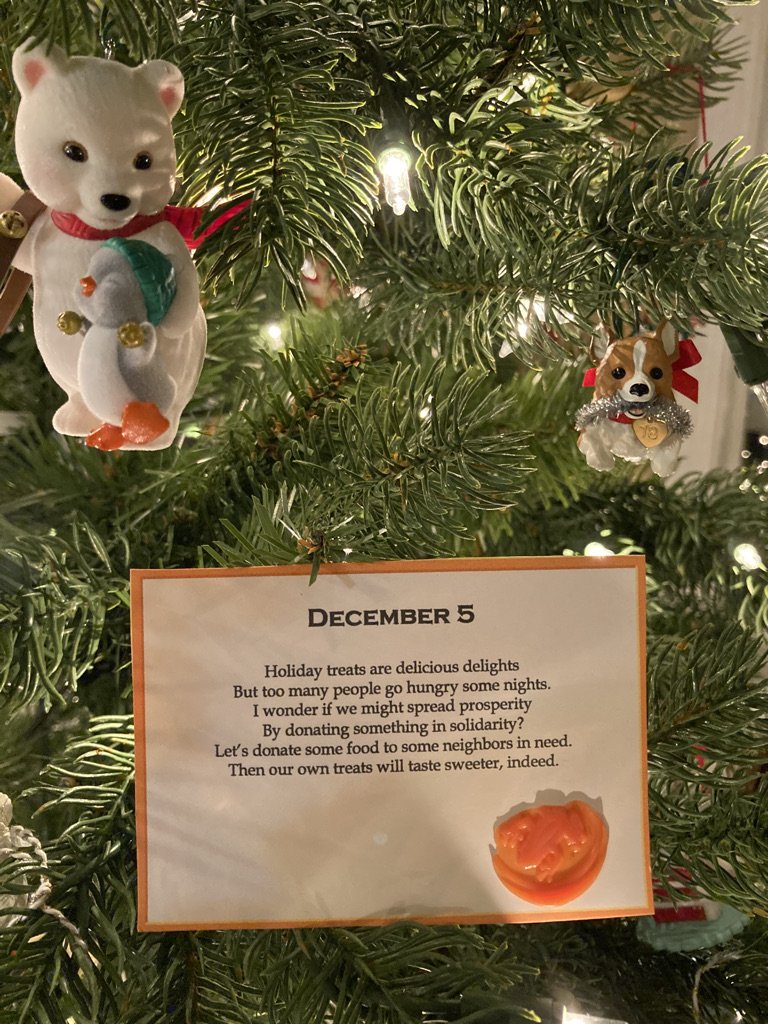Activity:
The goal today is to think about food, and, if you can stomach it, to think about food insecurity more generally. A recent analysis from researchers at Northwestern found that nearly 30% of U.S. households with children are currently food insecure, up from the already bleak 13.6% pre-pandemic. I want to leave today’s prompt extremely open-ended because we are all facing different and uniquely challenging circumstances.
If you and your family are food secure right now, it would be an excellent time to consider a donation to someone who is currently less fortunate. Food for Lane County has lots of ways to donate, whether with funds, food, or even by delivering meals to seniors. You could also participate even more personally; have you been meaning to bring some treats to an older neighbor, or even offer to grab them some groceries? Would you like an excuse to bake too many cookies and deliver them to a friend, even if it’s just because it would bring them some cheer? Are you helping to raise funds for/put together holiday food boxes (like the amazing Nest members here)? You can choose any of these options. All of them give you a chance to chat with your children about empathy and, to whatever extent you deem fit, food justice. The important points to hit are:
Lots of people struggle with food insecurity. That’s always been true, but it is especially true because a lot of people have not been able to work during the pandemic.
There are some systems in place to help our friends and neighbors who are food insecure. When we can contribute to those systems, we absolutely should.
Both domestically and worldwide, humans produce more than enough food to feed everyone. Therefore the only shame surrounding food insecurity is that it exists at all. We should think creatively about how we can fix broken systems that allow some to be wasteful, and others to suffer. But for my two- and four-year-olds, I cast this as hypothetical scenarios: if you had too much to eat, would it be better to share it or throw it away? Would you eat more simply if it meant everyone could have as much as they need to thrive?
If you and your family are in Eugene/Springfield and are food insecure right now, and are comfortable doing so, send me a message by the end of the day on December 3 (either through this site, our Insta page, or Facebook Messenger). I’ll head out by 4:30 p.m. on December 4 with some treats that your frog can give your kids that evening. In your message, let me know your address, any details that’ll make it easier to find your house in the dark, any dietary restrictions, and how many kiddos in your household. It stays between you and me.
Rationale:
Over the past year our already inadequate social safety net has failed us almost entirely. Millions of Americans are out of work or precariously employed, many of us have incurred unexpected expenses and losses during the pandemic or this summer’s wildfires, and little help has come. By encouraging our children to respond to a community need—be it through mutual aid, charitable aid, or simply person-person giving—we’re helping them understand how empathy makes our communities stronger.
Book Recommendation:
There are a few good books on food insecurity, but many of them are focused internationally, and I think it’s important to take this moment to think about hunger at home. I like Maddi’s Fridge by Lois Brandt and Vin Vogel for this, which describes two close friends, their very different refrigerators, and what to do about it. You can watch a read-aloud of the story here.




